Exploring Auth0 alternatives is a great example of being tech-savvy in this fast-paced business world.
When you’re looking to secure your application, you may have turned to Auth0 as a trusted authentication and authorization provider.
Auth0 is well-regarded for its ease of integration, comprehensive security features, and developer-friendly approach.
However, your project’s specific needs or budget constraints might lead you to seek out alternatives to Auth0.
These alternatives could offer a better fit or more favorable pricing.
The market is replete with robust Auth0 alternatives that provide similar functionality such as single sign-on (SSO), multi-factor authentication (MFA), and user management.
Some of these platforms aim to simplify the transition by emphasizing a seamless user experience and reduced developer workload.
Whether you’re looking for an open-source solution or a platform with specialized features, there’s likely an alternative out there that matches your requirements.
Comparing different authentication platforms involves looking at aspects like feature sets, cost, ease of use, and how they can be tailored to your system’s architecture.
Picking the right solution not only bolsters your application’s security posture but can positively impact your user retention and overall satisfaction by offering smooth and secure access to your digital environment.
Auth0 Alternatives
When you’re looking to enhance or replace your user authentication system, consider these trusted Auth0 alternatives.
Each offers unique features that could be better suited to your specific security needs.
1. Okta

Okta offers a robust set of identity management solutions tailored for various sizes of businesses.
With Okta, you get a comprehensive suite of features such as Single Sign-On (SSO), Multi-Factor Authentication (MFA), and adaptable integration with numerous apps and services.
2. OneLogin
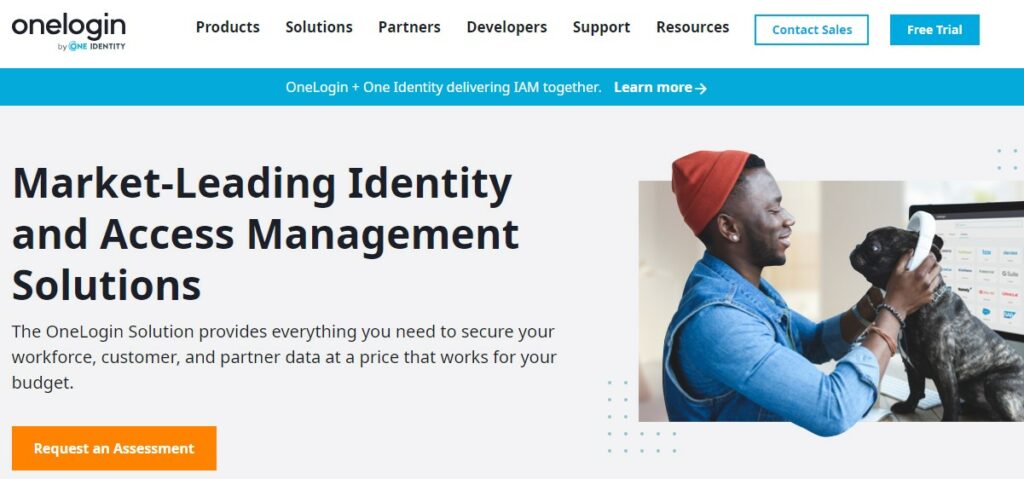
OneLogin provides a streamlined approach to SSO and MFA, emphasizing ease of use and efficiency.
It’s an excellent choice for businesses that prioritize a balance between strong security measures and a user-friendly experience for team members.
3. Ping Identity
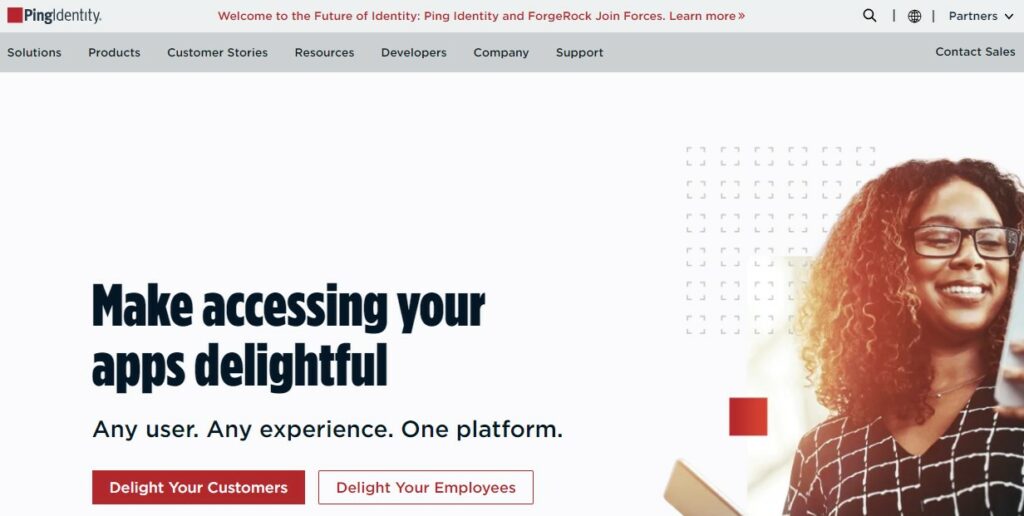
Ping Identity specializes in intelligent identity solutions for enterprises.
It’s recognized for its flexibility in both cloud and hybrid IT environments and boasts strong capabilities in API security, making it well-suited for organizations that require customization at scale.
Open-Source Solutions
When you’re looking for an Auth0 alternative, open-source solutions offer control, customizability, and can potentially reduce costs.
Let’s explore some specific alternatives.
4. Keycloak
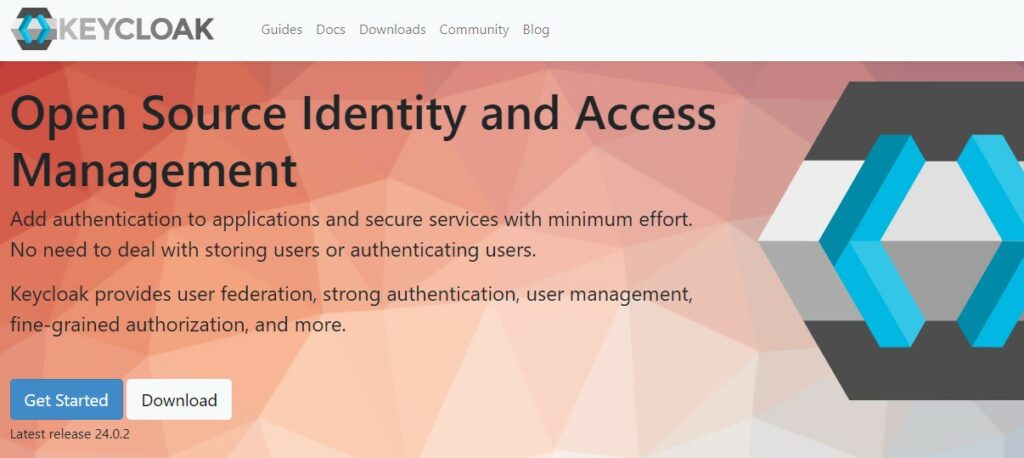
Keycloak is a comprehensive identity and access management solution.
It supports OAuth 2.0, OpenID Connect, and SAML 2.0, covering a broad range of use cases.
Keycloak provides features like Single-Sign-On (SSO), social login, and multi-factor authentication.
Its ease of use and adaptable nature make it a favorite for securing applications and services.
- SSO: Simplifies user access by using a single set of credentials.
- Protocols: Implements standards to ensure compatibility and security.
5. Gluu
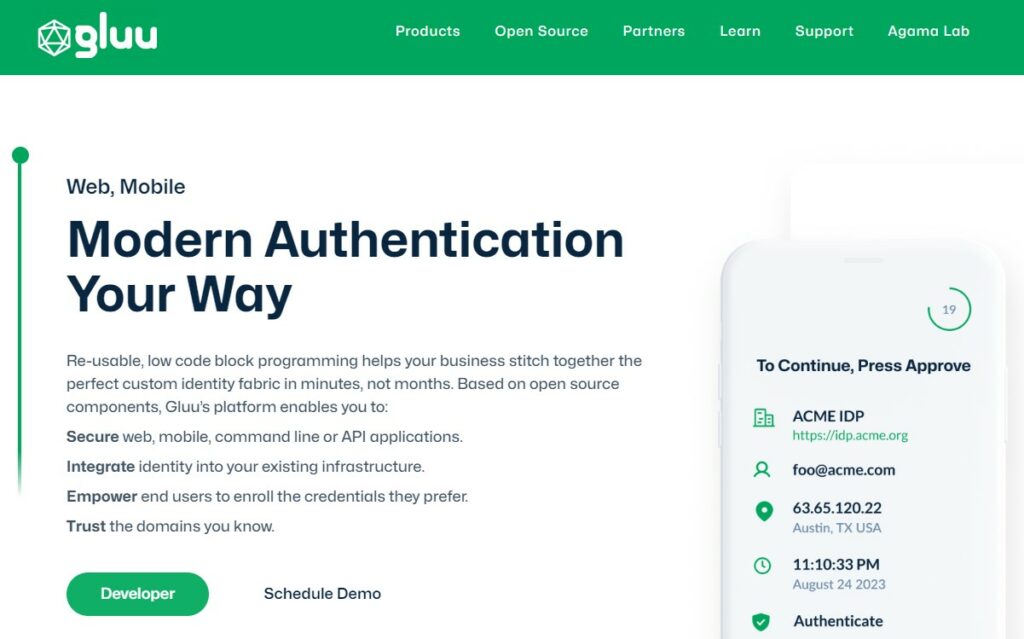
Gluu offers enterprise-grade, open-source authorization and authentication.
You can expect robust support for various standards, including SAML and OpenID Connect, that work seamlessly to protect your organization’s assets.
Gluu excels in its extensive policy management capabilities and centralized authentication.
- Enterprise Focus: Tailored for organizational use with a strong emphasis on security.
- Standards Compliance: Adheres to widely accepted protocols to provide trusted identity management.
6. FreeIPA
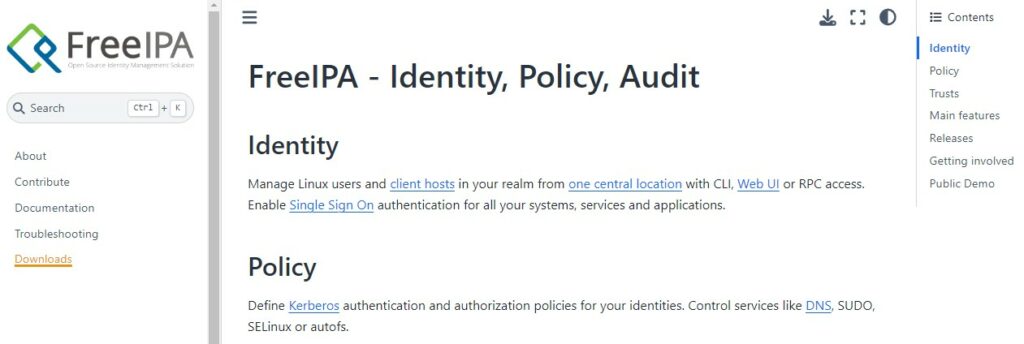
FreeIPA is oriented towards providing identity management for Linux/Unix systems.
FreeIPA combines Linux (like Red Hat Enterprise Linux and Fedora) and the 389 Directory Server to create a centralized source of user identities.
It not only simplifies the administration of user accounts but also handles DNS, certificate management, and more within a Unix network.
- Linux Integration: Works smoothly with Linux environments.
- Centralization: Manages multiple aspects from a single point, reducing complexity.
Comparison Criteria
Before you dive into the sea of Auth0 alternatives, you should consider certain key factors to ensure that the solution you choose aligns with your security and operational requirements.
Security Features
When assessing alternatives, pay close attention to the security features.
This includes multi-factor authentication (MFA), single sign-on (SSO), and compliance with standards like OAuth 2.0 and OpenID Connect (OIDC).
You want to ensure your alternative provides robust protection for both your applications and your users’ data.
Multi-Factor Authentication (MFA): Check for support and flexibility in MFA methods.
Compliance Standards: Confirm alignment with industry standards such as GDPR, HIPAA, SOC2, etc.
User Management
Effective user management capabilities are crucial.
Look for options that allow you to smoothly add, remove, or update user information, and manage roles and permissions without a lot of overhead.
Evaluate how the solution scales as your user base grows.
Scalability: The solution should accommodate an increasing number of users efficiently.
Roles and Permissions: Ensure ease of assigning and modifying access controls.
Integration Options
Your chosen solution should play well with your existing integration options.
Verify if it supports standard protocols and has pre-built integrations or APIs for connecting with your current tech stack effectively.
Standard Protocols: Look for support of SAML, LDAP, REST APIs, and whether SDKs are available for various platforms.
Tech Stack Compatibility: Ensure the solution fits seamlessly with your infrastructure (cloud, on-premises, hybrid).
Implementing Alternatives
When you’re ready to switch to an Auth0 alternative, it’s crucial to have a strategy in place, understand the best practices, and be aware of common pitfalls to ensure a smooth transition.
Migration Strategies
Assess the Current System: Begin by thoroughly understanding your existing Auth0 setup.
Identify all the integration points, custom rules, and configurations that need to be replicated or adapted in the new platform.
Choose a Suitable Alternative: Based on features like SSO, MFA, and cost-effectiveness, select an alternative such as Firebase, Frontegg, Stytch, or an open-source solution like FusionAuth that fits your needs.
Best Practices
Testing: Before full migration, rigorously test the new system in a controlled environment to ensure functionality matches expectations.
Timeline: Create a clear roadmap with milestones for your migration, including data transfer and feature parity checks, to avoid business disruption.
Common Pitfalls
Data Integrity Issues: Ensure the integrity of user data during transfer.
Cross-verify the details post-migration to prevent loss of critical authentication information.
Underestimating Customization Time: Account for the time it takes to customize the new platform to suit your specific workflows and authentication requirements.
Key Takeaways
When you’re seeking alternatives to Auth0 for authentication and authorization solutions, remember that several competitors offer diverse features that may suit your specific project needs:
Wide Range of Options: You can choose from a variety of Auth0 alternatives, each with distinct strengths.
Frontegg, ForgeRock, and Keycloak are commonly noted for their robust security features.
Open Source vs. Proprietary: Consider the trade-offs between open-source platforms like Keycloak, which can be more customizable, and proprietary services like Okta or Azure AD.
The latter offer comprehensive support.
Integration Capabilities: Look for a solution that integrates smoothly with your existing tech stack.
Firebase is noted for its seamless integration with Google services, while AWS Cognito works well within the Amazon ecosystem.
Feature Set: Determine your requirements and match them with the features provided by these alternatives.
Common features across most platforms include Single Sign-On (SSO), Multi-Factor Authentication (MFA), and a variety of connectivity protocols.
Here’s a quick comparison chart based on general criteria:
| Platform | Open Source | SSO | MFA | Integration |
|---|---|---|---|---|
| Frontegg | No | Yes | Yes | High |
| Keycloak | Yes | Yes | Yes | Moderate |
| Firebase | No | Yes | Yes | |
| Okta | No | Yes | Yes | High |
| Azure AD | No | Yes | Yes | Microsoft |
Choose a platform that aligns with your security, scalability, and usability needs.
Each option offers a unique set of tools for managing user identity and access, ensuring that you can find a fitting replacement for Auth0.

